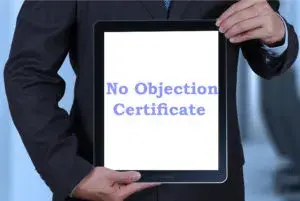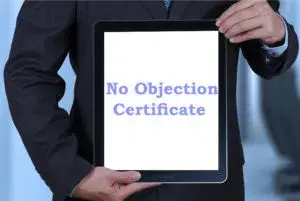Union Budget 2019-20: A 10-year road map to strengthen Indian Economy

“People’s hearts filled with Aasha (Hope), Vishwas (Trust), Aakansha (Aspirations)” – Finance Minister
After so many speculations, the much-awaited Indian Union Budget 2019-20 was finally presented by the newly appointed Hon’ble Finance Minister Mrs. Nirmala Siharaman in the Indian Parliament on July 05, 2019.
The Budget broadly focused on tax, healthcare, housing, electric vehicles, start-ups, decentralization of powers to RBI, fighting NPA’s, technology, infrastructure and education to name a few. The Government wants to achieve $5 trillion economy by 2024, basis which the Budget has been prepared with a long term forecast.
The Budget at a glance:[1]

Vision for the Decade

Budget Highlights
- Interchangeability of PAN and Aadhaar. Aadhaar can be used wherever PAN is required.
- Pre-filling of Income-tax Returns for faster, more accurate tax returns
- Faceless e-assessment with no human interface to be launched.
Direct Tax
- Tax rate reduced to 25% for companies with annual turnover up to Rs. 400 crore
- Surcharge increased on individuals having taxable income from Rs. 2 crore to Rs. 5 crore and Rs. 5 crore and above.
Indirect Tax
- Basic Customs Duty increased on cashew kernels, PVC, tiles, auto parts, marble slabs, optical fibre cable, CCTV camera etc.
- Exemptions from Custom Duty on certain electronic items now manufactured in India withdrawn.
- 5% Basic Custom Duty imposed on imported books
- Increase in Special Additional Excise Duty and Road and Infrastructure Cess each by Rs. 1 per litre on petrol and diesel
- Custom duty on gold and other precious metals increased
- Constitution of National Appellate Authority for Advance Ruling (NAAAR).
Start Up Boosters
- Propose easing angel tax for startups.
- Angel tax: Won’t require scrutiny from I-T department for startup.
- E-verification mechanism for establishing investor identity and source of funds for startups.
- ‘Stand Up India’ Scheme to continue till 2025.
- New television channel for start-ups.
Focus on Education
- National education policy to propose major changes in both secondary and higher education
- Swayam Initiative – Digital education to be promoted
- Greater focus on research and development – National Research Foundation to fund and promote research – pooling of research grants from various ministries and disbursing them, preventing duplication of research projects
- For the Youth – New national educational policy to transform the Indian education system
Relief for MSMEs
- 350 crore rupees allocated for 2% interest subvention for all GST-registered MSMEs on fresh or incremental loans
- MSME: Large-scale extensive reforms planned, government to create a platform for MSME payments
- MSME to get loans up to 1 crore within 59 minutes. Loans worth Rs. 350 crore already disburse
Liberalisation of FDI
- 100 per cent FDI permitted in Insurance Intermediaries
- Single Brand Retail – relaxation in local sourcing norms proposed
- Sectoral caps for FDI in certain sectors to be liberalised (e.g. aviation, media, insurance, etc.)
Infrastructure
- Focus on investment in infrastructure, national highways and aviation sectors
- The second phase of Bharat Mala to develop state highways
- A comprehensive restructuring of national highways will be taken up
The future of transportation: Electric Vehicles
- Lower GST Rate from 12% to 5% on Electric vehicle and Additional Income Tax Deduction of 2.5 Lakh on Interest paid on loan taken to purchase an electric vehicle
- To make electric vehicles affordable, additional IT deduction on 1.5 lakh on interest paid on loan taken to purchase electric vehicles
Technology intensive economy
- Solar storage batteries and chargers included in 35AD deduction: FM
- Program of mass scaling of LED Bulbs – Approx. 35 Crores of LED bulbs distribute
- Machines and robots to be deployed for scavenging
- Focus on VR, AI, Robotics training to youth to align India with the World
Schemes introduced in the Budget
- Sabka Vishwas (Legacy Dispute Resolution) Scheme, 2019 for quick closure of pending litigations in Central Excise and Service tax from pre-GST regime
- Pradhan Mantri Karam Yogi Maandhan Scheme: Pension benefits to about three crore retail traders & small shopkeepers with annual turnover less than Rs. 1.5 crore.
- Scheme for Promotion of Innovation, Rural Industry and Entrepreneurship” (ASPIRE): 80 Livelihood Business Incubators (LBIs) and 20 Technology Business Incubators (TBIs) to be setup in 2019-20. 75,000 entrepreneurs to be skilled in agro-rural industry sectors
_______________________________
[1] https://www2.deloitte.com/content/dam/Deloitte/in/Documents/tax/in-tax-unionbudget2019-publication-noexp.pdf
Maharashtra Government mandates ICC Registration under POSH Laws in India

With the enforcement of the Sexual Harassment of Women at Workplace (Prevention, Prohibition and Redressal) Act, 2013 and Rules (2013) (hereinafter collectively referred to as “POSH laws”) stricter measures have been adopted with the aim to justify the objective of the fundamental rights enshrined in the Constitution of India to prevent discrimination and harassment against women
Role of Internal Complaints Committee
The POSH laws require every establishment/ employer employing more than 10 person is required to establish an Internal Complaints Committee (hereinafter referred to as the “ICC”) to provide an appropriate forum for redressal of the complaints pertaining to the untoward incidents of sexual harassment to women at workplace thereby providing a safe workplace. An aggrieved woman may report an incident of sexual harassment with the ICC which shall then initiate the process for redressal of the same including but not limited to informing the complainant about reconciliation, undertaking investigation of the matter, arriving at a conclusion and submitting recommendations to the Employer.
The ICC is required by POSH laws to prepare an annual report and submit the same to the employer and the District Officer in each calendar year. The District Officer shall forward a brief report on the annual reports so received to the State Government.
Novel approach
With the view to ascertain compliance to the obligation of the establishments to set up the ICC for facilitating the female staff employed with them, the office of District Women and Child Development Officer in Mumbai State of Maharashtra, vide a general letter issued on March 23, 2019, has mandated the establishments / organizations in Mumbai to constitute and register their ICCs with the Sub-Divisional Magistrate (SDM), Old Custom House, Shaheed Bhagat Singh Road, Fort, Mumbai – 400001 on or before 20 July 2019.
Andhra Pradesh Set to Follow Foot Steps of Telangana to Ban Online Rummy

The increase in the number of online gaming platforms offering pelothra of games including poker, rummy amongst others etc. is quickly gaining momentum in India. While the State of Nagaland has formally regulated online gaming and developed robust licensing structure, some of the Indian states are disapproving the online gaming especially with stakes in the respective states.
Telangana perhaps is one of the few states which implemented the policy of zero tolerance against risking of money vide the Telangana Gaming Amendment Act, 2017 which covers within its ambit any act of risking money on an uncertain event, including on a game of skill.
It has now been reported in the public domain that Andhra Pradesh is contemplating to ban online rummy in the state. As per the limited available information, State’s Minister of Tourism, Culture and Youth Advancement, Avanthi Srinivas, as well as many others, are of the opinion that online Rummy is currently having a particularly negative impact on the state of mental health of the nation’s youth and as such in the process of drafting formal registration.
Judicial standpoint
The Apex Court clearly recognizes the
games with below elements are not “gambling”[1] :
- where success depends on substantial degree of skill; and
- despite there being an element of chance there is requirement of application of skill.
The law in India states a game to be a game of skill, even with the element of chance if it depends upon[1] :
- Superior knowledge;
- Training;
- Attention;
- Experience;
- Adroitness of the Player;
- Element of Skill predominates over the element of chance
Various judicial forums have recognized rummy as game of skill as it requires certain amount of skill because the fall of the cards has to be memorized and the building up of Rummy requires considerable skill in holding and discarding cards.[2]
Conclusion
The law regarding the governance of games remains in the grey area. There persists the requirement to clearly establish the criteria distinguishing the game of skill from a game entirely dependent upon chance. Being governed under the regime of the State Legislation, there remains absence of a uniformed opinion ensuring legality of certain games over others. Mere involvement of stakes is an inefficient mechanism to tag a game as a gambling activity.
There emerges an increasing requirement of a Central effective legislation throwing light on the activities which may be specifically classified as gambling separating it from those involving preponderance of skill.
________________________________________
[1]State of Bombay v. RMD Chamarbaugwala[ A.I.R., 1957 S.C. 699]
[2]Dr. K.R. Lakshmanan vs State Of Tamil Nadu & Anr [1996 AIR 1153]
[3] Dr. K.R. Lakshmanan vs State Of Tamil Nadu & Anr [1996 AIR 1153]; In State of Andhra Pradesh vs. K. Satyanarayana & Ors. (1968) 2 SCR 387
Amendment to Companies Act for CSR

The Government introduced the concept of corporate social responsibility vide the enforcement of the Companies Act, 2013(hereinafter referred to as the “Act”) on August 29, 2013. Companies undertake various such as working towards eradicating poverty, promoting healthcare, education, gender equality, environmental sustainability, natural heritage, rural sports to name a few.
As a part of this social economic obligation, every company ensures that it spends, in every financial year, at least 2 % of its average net profits made during the three immediately preceding financial years, in pursuance to its
Corporate Social Responsibility Policy. As per Section 135 of the
Companies Act, 2013, following companies are mandated to adhere to its corporate social responsibility obligations:
- Companies having net worth of INR 5,000,000,000 or more, or
- Companies having turnover of INR 10,000,000,000 or more or;
- Companies having a net profit of rupees INR 50,000,000 or more
The Companies (Corporate Social Responsibility) Rules, 2014 were enforced on February 27, 2014 in order to ensure proper monitoring and regulation of the corporate social responsibility activities undertaken by the companies.
As a further amendment to the provisions of the Act, the Union cabinet on July 17, 2019 cleared the Companies (Amendment) Bill 2019[1] whereby the following changes may be introduced:
- Companies would be mandated to deposit funds for mandatory corporate social responsibility expenditure for a given fiscal in the escrow account for up to 3 years, if the amount is part of an ongoing project that requires funding in stages; AND
- Any due expenditure for a fiscal that is not spent within 3 years would to be transferred to the National CSR Fund
This will enable the Government to ensure better utilization of the unused corporate social responsibility fund for public welfare.
______________________________
[1]https://economictimes.indiatimes.com/news/economy/policy/cabinet-clears-bill-to-amend-companies-law/articleshow/70261679.cms



 After so many speculations, the much-awaited Indian Union Budget 2019-20 was finally presented by the newly appointed Hon’ble Finance Minister Mrs. Nirmala Siharaman in the Indian Parliament on July 05, 2019
After so many speculations, the much-awaited Indian Union Budget 2019-20 was finally presented by the newly appointed Hon’ble Finance Minister Mrs. Nirmala Siharaman in the Indian Parliament on July 05, 2019

 The Government introduced the concept of corporate social responsibility vide the enforcement of the Companies Act, 2013(hereinafter referred to as the “Act”) on August 29, 2013
The Government introduced the concept of corporate social responsibility vide the enforcement of the Companies Act, 2013(hereinafter referred to as the “Act”) on August 29, 2013